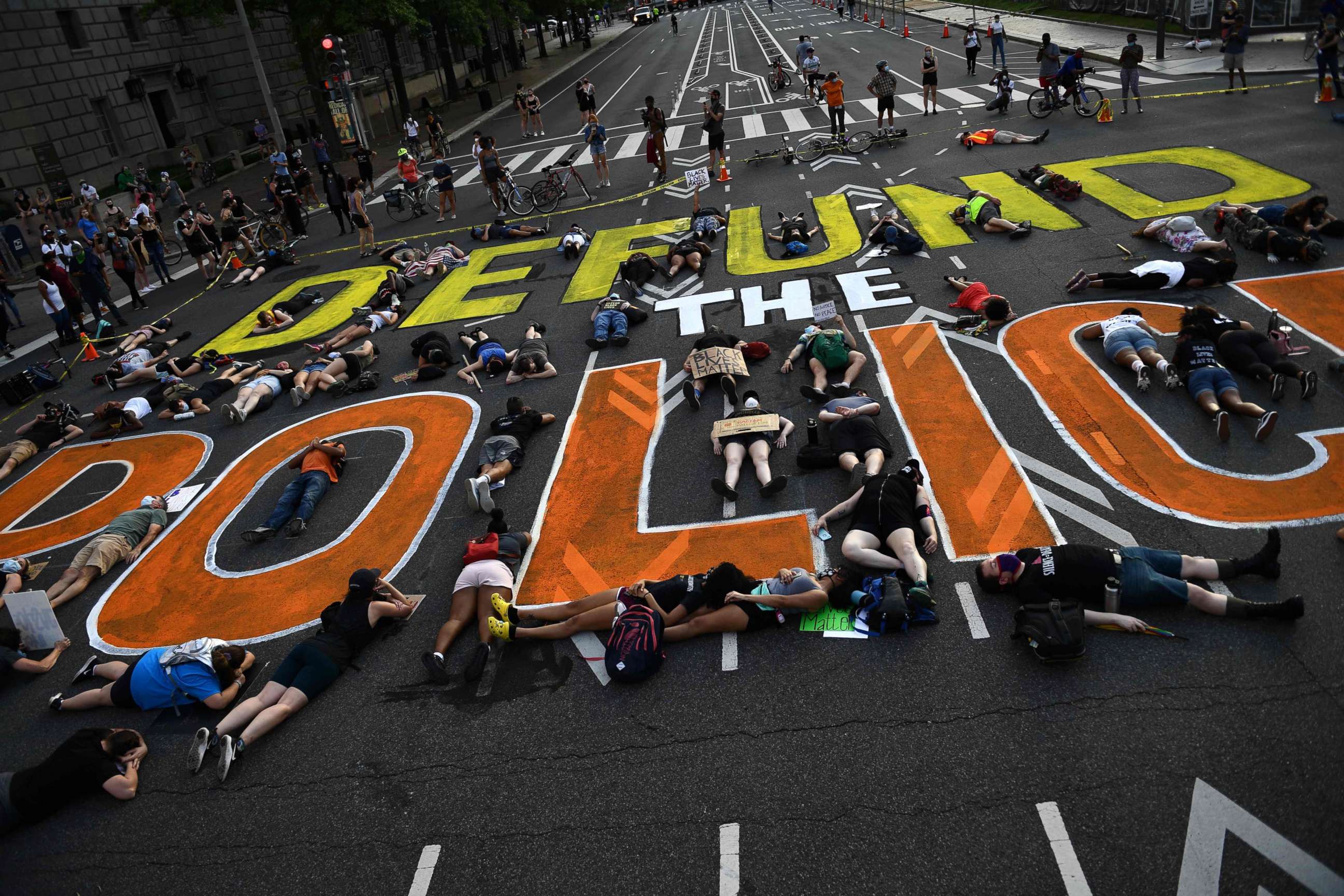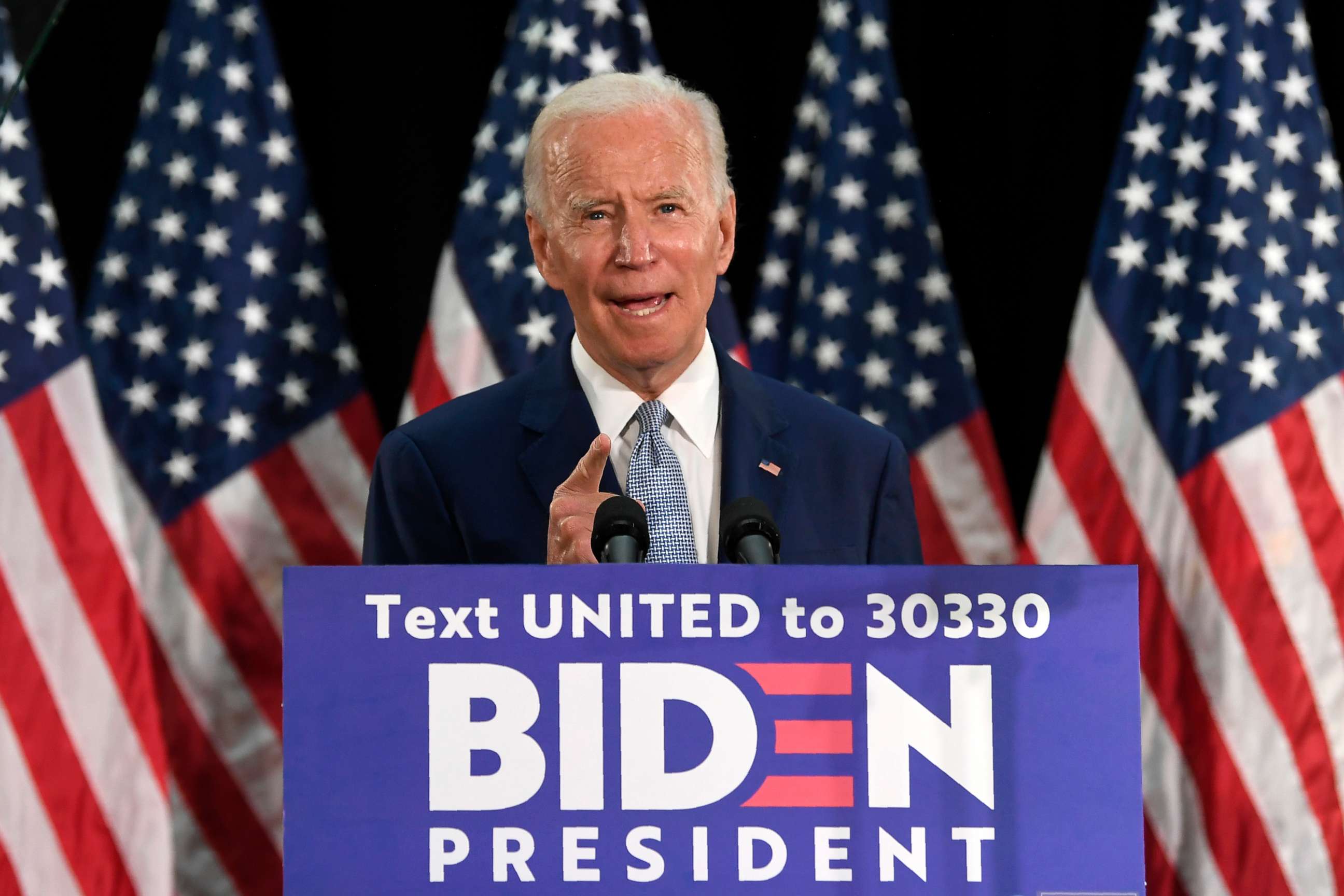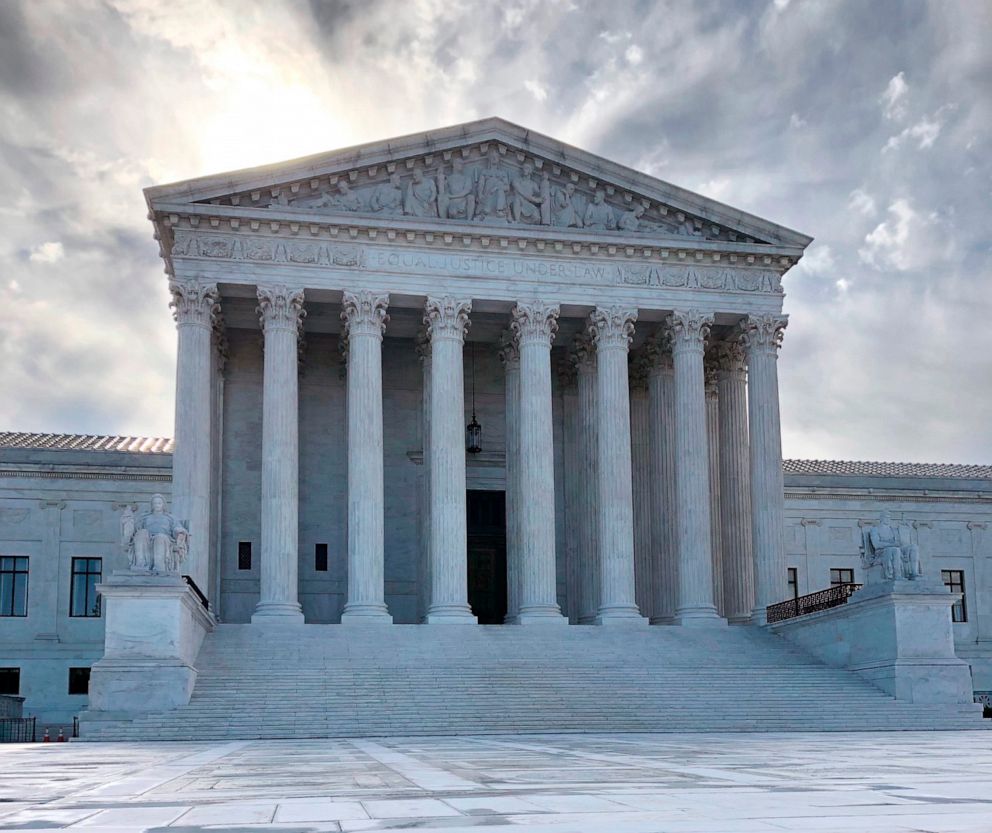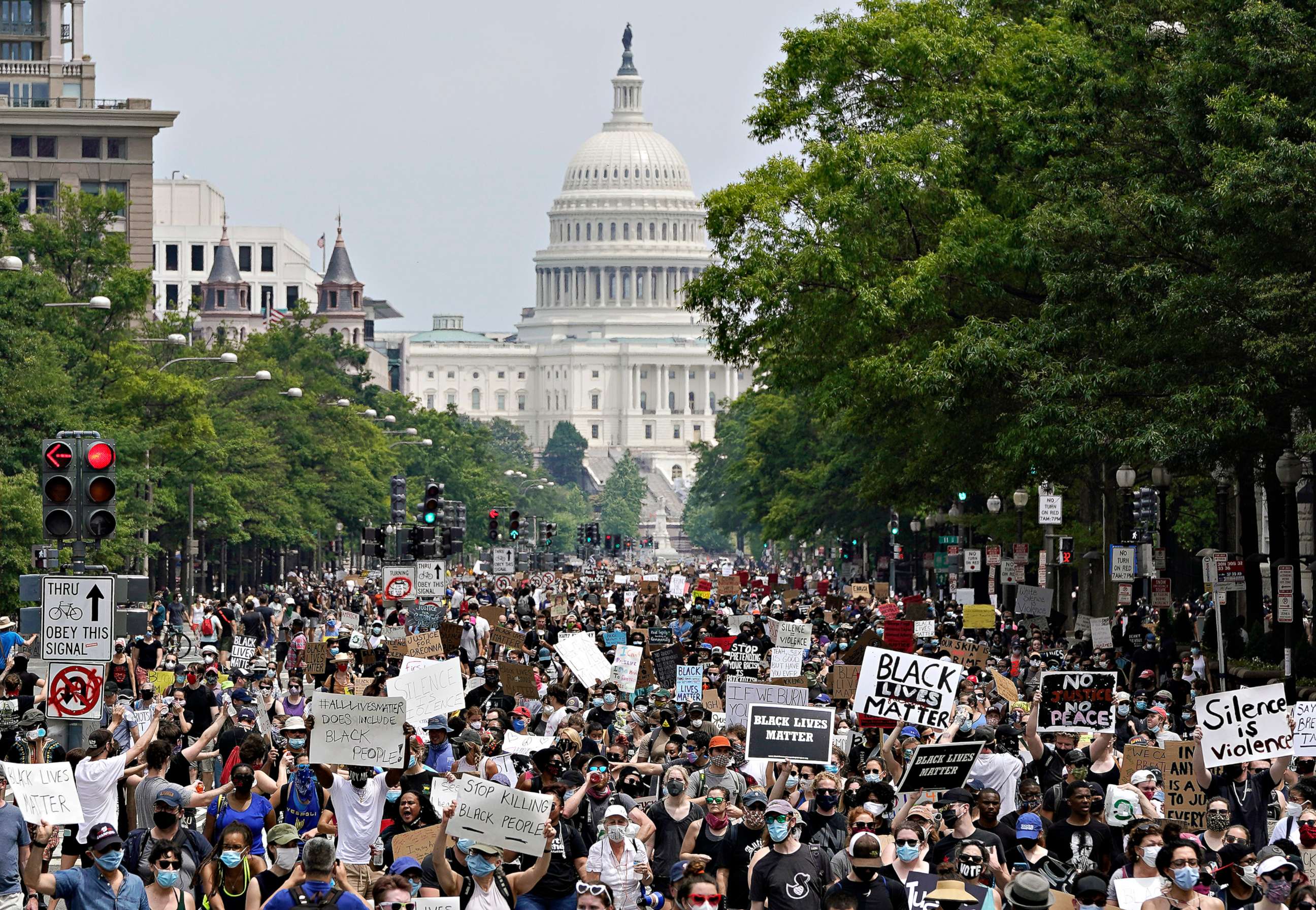The Note: Democrats confront 'defund' debate as protests point toward policy
Former Vice President Joe Biden has yet to weigh in on the issue.
The TAKE with Rick Klein
A president whose brand is division has managed to achieve a measure of unity among his political opponents, as images of diverse crowds from nationwide protests over the weekend attest.
But now comes a harder phase for Democrats. Another image tells that story: The "Black Lives Matter" public art commissioned by the District of Columbia just off of the White House grounds now has an added message from protesters that could be awkward for former Vice President Joe Biden and other party leaders: "Defund the Police."

Coming off a weekend where he secured enough delegates to seal the Democratic nomination, Biden heads to Houston on Monday to meet with George Floyd's family, ahead of Tuesday's funeral. Even before those events, outrage over police tactics and racial injustice has transformed into demands for action that could represent dangerous political terrain in a campaign against President Donald Trump.
"Defund the police" doesn't mean eliminating police functions any more than "abolish ICE" means erasing borders. But that's not a nuance Trump is likely to respect -- or that voters will necessarily pick up on -- as Trump promises "law and order" in response to protests.
Biden hasn't weighed in on the "defund" debate yet, though he has voiced support for Los Angeles Mayor Eric Garcetti's move to cut his police budget to support programs for communities of color. Still, Biden's authorship of the 1994 crime bill -- which, aside from controversial sentencing reforms, funded the hiring of some 100,000 additional police officers -- limits some of his messaging flexibility.

The president appears to have overstepped his political bounds in threatening confrontations with protesters in the past week, as the backlash among military leaders and some prominent Republicans has made clear.
But the room for movement in the other party may be limited as well. Biden remains an imperfect messenger in a party that is struggling to catch up to the dynamics of the moment, with evolving imagery and uncertain solutions.
The RUNDOWN with MaryAlice Parks
The U.S. Supreme Court will hand down several politically-charged opinions over the next few weeks. There are 20 cases still to come down over the next 20 days.
Some of the most highly-anticipated cases could add fuel to an already smoldering political climate. With the presidential election fewer than six months away, the president may pay a political price, too, for some policies his administration fought for in the courts -- not the mention the fact that two cases deal with his tax returns.

Although a majority of Americans support finding a deal to protect and extend the visas of so-called DREAMers in the country, the court will soon decide whether to uphold the Trump administration's push to reverse Obama's executive action that offered hundreds of thousands of young people sanctuary and instead subject them to deportation. Experts will be looking closely on this case to Chief Justice John Roberts, who has recently sided with other conservatives on immigration cases.
The court will also weigh in on a high-stakes abortion case, which could severely restrict reproductive health care access in over a dozen states and dramatically limit advocates' ability to sue states or local governments for undue burdens placed on patients. There are also outstanding cases about whether or not LGBTQ Americans are federally protected from workplace discrimination on the basis of their sexual orientation and gender identity.
Perhaps most in the news, the Supreme Court this week could decide to revisit the legal doctrine and precedent around "qualified immunity" for law enforcement -- which shields some in law enforcement from certain lawsuits and liability.
The court has been as partisan and divided as ever in recent weeks. A split 5-4 decision on the whether California's governor could continue to place limitations on in-person church services during the COVID-19 pandemic shocked many legal scholars.
The TIP with Benjamin Siegel
House and Senate Democrats will introduce a sweeping policing reform package on Monday, in the most comprehensive legislative response to George Floyd's killing in police custody and the subsequent protests across the country and the world.
Their proposal would create a national misconduct registry for law enforcement officers at every level, require mandatory racial bias trainings, and limit the transfer of military equipment to police departments.

It also takes aim at improving police accountability -- requiring states to report use of force incidents against civilians, and make it easier to prosecute police officers for wrongdoing and for individuals to seek damages in court if their constitutional rights are violated.
The ambitious package, which also imposes tighter conditions on federal funding tied to changes to training and practices, is expected to face resistance from police union and some advocacy groups. The GOP-led Senate, which has yet to pass a federal lynching ban also included in the measure, is unlikely to take up the package, but could seek to pass a set of more narrow reforms.
ONE MORE THING
Last week, Trump raised the possibility of sending in active duty troops to control nationwide protests sparked by the death of George Floyd while he was in police custody. A new ABC/Ipsos poll finds that a slight majority of Americans, 52%, approve of deploying the military in response to violent protests.
BRINGING AMERICA BACK
Thousands of coaches forced to end their seasons abruptly due to the coronavirus are still struggling to find ways to coach without directly interacting with players. Read this story and more by checking out Bringing America Back, an ABC News feature that highlights the day's top stories in economic recovery and medical preparedness amid the coronavirus pandemic.
THE PLAYLIST
ABC News' "Start Here" podcast. Monday morning's episode features ABC News' Zachary Keisch, who joins us from Minneapolis to explain what protestors are pushing for when they talk about "defunding" the police. Then, ABC News Political Director Rick Klein breaks down new polling around President Trump's response to the unrest. And, ABC News' Deirdre Bolton tells us what to make of the surprising jobs numbers released on Friday. http://apple.co/2HPocUL
WHAT YOU NEED TO KNOW TODAY
Download the ABC News app and select "The Note" as an item of interest to receive the day's sharpest political analysis.
The Note is a daily ABC News feature that highlights the day's top stories in politics. Please check back tomorrow for the latest.




